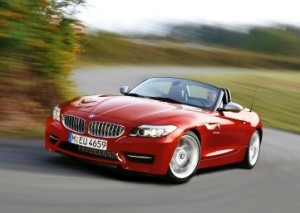BMW is recalling 150,000 recent models sold in the United States due to the potential failure of their fuel pumps, which could lead to trouble starting an impacted vehicle or reduced performance.
The recall growing reports of problems with some of the maker’s turbocharged products, which an industry analyst describes as “an enormous problem.”
A total of 130,000 BMWs sold from the 2007 through 2010 model-years and equipped with twin-turbo six-cylinder engines are impacted by the recall. The maker will advise motorists to bring those models to their dealers for inspection.
BMW expects to ultimately replace the high-pressure fuel pumps in about 40,000 of those vehicles. Those and some of the other vehicles may also require a software update.
The affected models are the 2007 to 2010 BMW 335i, 2008 to 2010 135i, 535i and X6 xDrive35i models, as well as 2009 and ’10 Z4 sDrive35i roadsters, the maker said in announcing the recall.
Symptoms include long-crank engine starting times,” said a BMW statement, “along with the illumination of the ‘Service Engine Soon’ light. In certain cases, the driver may experience reduced engine performance in a Safe Mode accompanied by a tone and the illumination of the ‘Engine Malfunction’ light.”
The recall also covers another 20,800 BMW X5 Sport-Activity Vehicles produced in the 2008 model-year, but equipped with a normally-aspirated, or non-turbo, six-cylinder engine. They may also suffer problems with low-pressure fuel pumps, according to BMW.
The fuel pump issue is “an enormous problem,” and one of several issues plaguing turbocharged engines used in BMW models such as the 1- and 3-Series, said David Champion, chief of automotive testing for the non-profit Consumer Reports. It has resulted in a sharp decline in the brand’s performance in CR’s annual reliability rankings, which were released Tuesday. (For the full story on the CR rankings, Click Here.)
The fuel pump problems have also led a number of consumers to file lawsuits against the German automaker.
This is the second major recall of BMW products in a month. At the beginning of October, the German maker and its Rolls-Royce subsidiary announced plans to make repairs for potentially leaky power brake systems. That callback impacts 200,000 BMW and Rolls passenger cars sold in the U.S., and nearly 150,000 more sold in other parts of the world.

